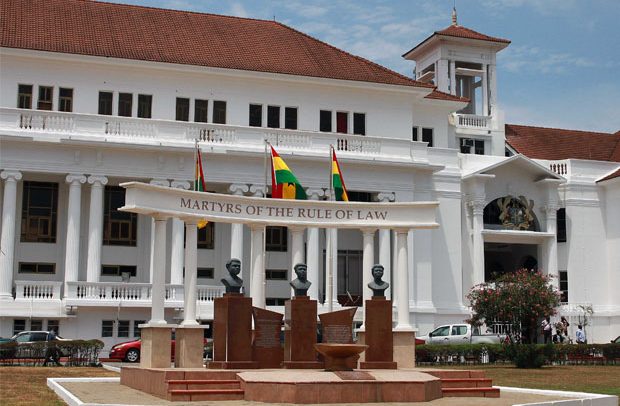The Supreme Court of Ghana has upheld the case of an Italian-based ‘commercial sex worker’ thus granting her ownership of properties she acquired in Ghana through her intended husband.
The plaintiff, Ama Serwaa, and the defendant, Issaka Hashimu, both migrant workers, met in Italy and cohabited, fell in love for a period, making the woman develop a firm belief that marriage was imminent.
As a result, the woman made an arrangement with the man to acquire properties in Ghana and even shipped a vehicle in 2002 which was not accounted for, when she returned to Ghana after having lost her travel documents.
Additionally, she adds that while she was in Ghana, they cohabited at a rented place at Tantra Hills while their Madina house was still not completed.
Subsequently, Ama Serwaaa went to stay at their Madina house but claimed was forced to move due to harassment she suffered at the hands of Issaka Hasimu and his sister.
Later, she had a stillbirth within the period that their relationship broke down and had mental issues due to the myriad of challenges she faced afterward.
After being subjected to treatment and recovering, Ama Serwaa says she returned to Accra only to find out that her intended husband had married someone else.
She thus issued a writ in September 2008 against Issaka and one other for breach of promise to marry seeking inter alia;
General Damages for breach of promise to marry by 2nd Defendant
Refund of loans to the tune of E20,000 from 2nd Defendant with interest thereon from ——- to date of payment.
Half of the property at Madina and Ajirigano
Half of the 7 machines brought in with Plaintiff’s money which have been in the custody of 2nd Defendant as well as an account of proceeds from same to date.
As against 1st Defendant an account for proceeds from the sale of seven cars sent to him by Plaintiff and reimbursement to her of the sum with interest thereon.
Return to Plaintiff of the shop at Makola now occupied by 1st Defendant and general damages for the deprivation of Plaintiff and any other relief.
High Court
At the trial High Court, the plaintiff stated that as a commercial sex worker in Napoli, Italy, she made good money and gave some to the defendant to send to his brother in Denmark who held an account in their joint names as well as giving him “loans” to the tune of E20,000.
Further, when the defendant returned home to Ghana, to supervise the acquisition of the properties, she sent him some money; and while in Ghana to sell off second-hand shoes she had brought home to sell, she sent the defendant the money through an agent called ‘Joe”, for the purchase of the machines that were subsequently installed at Timber Market.
She maintained that she had expended her earnings towards the acquisition of the property because she believed they were in the process of preparing for married life together.
Indeed, she alleged she even began receiving tutoring from the defendant’s mother towards her eventual conversion to Islam, as she was required by Islamic law to do.
The trial court thus held for the plaintiff and granted her reliefs.
Court of Appeal
Not satisfied with the trial court’s judgment, the defendant, Issaka went to the court of Appeal arguing inter ala that the judgment was against the weight of evidence adduced at the trial.
The trial High Court’s decision was thus overturned by the Court of Appeal.
Supreme Court
The appellant, Ama Serwaa represented by counsel, Bobby Banson thus went to the apex court in December 2019 to overturn the decision of the Court of Appeal.
The five-member panel presided over by Justice Jones Dotse, in the opinion of Justice Prof Henrietta Mensa-Bonsu, made a finding of an error of law committed by the court of Appeal by not allowing the plaintiff to respond to a new ground on the legality or otherwise of prostitution in Ghana, raised on appeal by the defendant.
The apex court in a unanimous decision held that the plaintiff, Ama Serwaa on a balance of probabilities, had proven her claim against the defendant thus setting aside the decision of the Court of Appeal.
Other members of the panel were; Justice Yonny Kulendi, Justice Agnes Dordzie(Mrs), and Justice Lovelace Johnson(Ms).
DL News


